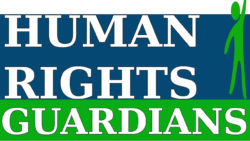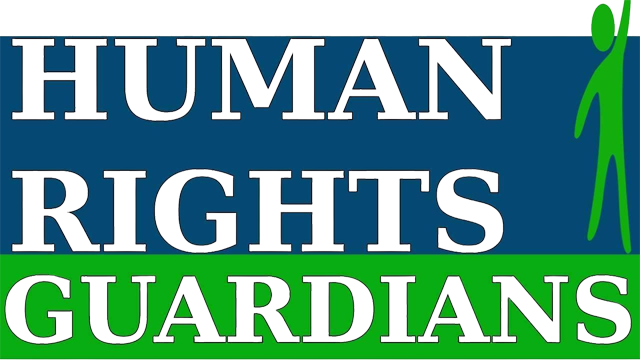The work of Human Rights Guardians
Work of the organization
-
1- Documenting violations, especially violations against forcibly disappeared and missing persons
-
2- Legal and psychological support for families of the missing
-
3. Documenting extrajudicial killings
-
4. Creating victim links and groups
Documentation of Violations:
If you are a survivor or witness of a serious crime and wish to speak with one of the documenters from the Human Rights Guardians Organization, please contact
– Until 2024, the Human Rights Guardians organization has conducted approximately 5,200 interviews with families of missing and forcibly disappeared persons, and documented 13,000 relatives of these missing persons in preparation for future contact with them and the collection of their blood samples.
– The organization also has a specialist in submitting complaints to the Working Group on Enforced or Involuntary Disappearances, where 350 complaints have been sent to the UN Working Group – https://www.ohchr.org/ar/special-procedures/wg-disappearances/mandate-working-group-enforced-or-involuntary-disappearances
– The organization’s international partner is the International Commission on Missing Persons:
They provided the necessary support, advice, and training, and provided the organization and other partners with the Missing Persons application and the Relatives application to build a secure centralized database and preserve it professionally. We adhere to best documentation practices, which include the principle of “do no harm” and obtaining informed consent while maintaining chain of custody.
– For more than 10 years, Human Rights Guardians has been collecting and documenting human rights violations and international humanitarian law violations in Syria to facilitate transitional justice and accountability efforts, both present and future. Our team of fifteen is neutral, ethnically diverse, and includes both men and women working inside Syria and neighboring countries, preserving evidence of violations regardless of the identity of the victim or perpetrator.
The documenters of the Human Rights Guardians organization collect interviews with survivors and their relatives from grave violations, including arrests, documenting cases of extrajudicial killings, documenting cases of forced recruitment and child recruitment, in addition to physical documents, photos, and videos. Furthermore, the team focuses on regularly updating the documented information and governing the data listed in the Missing Persons application and the Relatives application.
The areas where we work:
The organization’s data collectors and documenters have received the necessary training on interview procedures, confidentiality, informed consent, and non-harm principles, and we have a presence in the following areas: Qamishli – Hasakah – Rural Hasakah – Al-Shaddadi – Rural Deir ez-Zor – Raqqa – Rural Raqqa – Ras al-Ayn – Afrin – Western Rural Aleppo – Idlib – Rural Idlib – Rural Hama – and Turkey.
Report a violation about missing and forcibly disappeared persons:
Contact number: 00905385236193
baraa.hr0guardians@gmail.com via email:
Legal and Psychological Support for Families of the Missing:
Since its inception, Human Rights Guardians has been providing legal consultations to the families who have documented their cases with the organization. We also raise their legal awareness about the importance of documentation and its future purpose, as well as how they can engage in accountability and reparation mechanisms, while also preventing the falsification of history and facts.
We work with our partners to support family members in legal proceedings against the perpetrators of human rights violations that occurred in Syria.
We work with them to establish responsibility and seek justice for the families of the missing and forcibly disappeared, who have fallen victim to these violations.
Currently, with the support of partner organizations, we are working to achieve accountability through global judicial channels, while fighting for a future where justice will be served through a specialized Syrian court.
In this context, the organization, in partnership with the Danish Refugee Council, provided legal support to 1,300 men and women from the families of the missing, offering legal assistance through direct sessions in Antakya, the headquarters of Human Rights Guardians, with specialized lawyers from 2016 to 2018.
Additionally, 8,500 people were targeted through awareness brochures.
And 2,800 people were provided with legal consultations via phone through the organization’s hotline by the organization’s lawyers.
– The organization has also organized 20 workshops in Antakya, Gaziantep, Urfa (Turkey), Al-Atarib, Mardin, Afrin, Kafr Nabl, Raqqa, and Deir ez-Zor, raising awareness about international humanitarian law, international human rights law, UN mechanisms including the International Commission of Inquiry on Syria, the International, Impartial and Independent Mechanism, the new institution for missing persons, and the importance of advocacy for the missing persons’ cause and the purpose of documentation.
It has also trained over 500 families of missing and forcibly disappeared persons on evidence preservation and chain of custody, with the support of Baytna Syria, Dawlat Al-Yawm, NPW, Geneva Call, Institute for War & Peace Reporting, Adopt a Revolution, and Segha.
– The organization has conducted direct psychological and social support sessions for families of the missing in Antakya and Reyhanli, with the support of the Women’s Urgent Response Fund.
It has also connected families with organizations that provide psychological support to family members, such as the Aml Center for Advocacy and Recovery, partners of the organization (this work is ongoing).
– If you are a survivor and need any legal or psychological consultation, please contact the number 00905385236193
or via email:
Extrajudicial Killings:
No human right can be safeguarded without respect for the right to life. Extrajudicial, summary, or arbitrary executions—intentional killings outside any legal framework—are a violation of this fundamental right.
For this reason, documenting cases of extrajudicial killings has been one of the top priorities of the Human Rights Guardians Organization, which has paid great attention to this issue and developed a dedicated form for extrajudicial killings. The organization has also trained its data collectors on how to conduct interviews.
The Syrian Center for Justice and Accountability has played a prominent role in physically training the organization’s team, as well as SEGA, which conducted seven awareness sessions for Human Rights Guardians staff and investigators. These sessions provided training on all the documentation programs the organization works on, including the documentation of enforced disappearances, extrajudicial killings, arbitrary detention, and torture.
– Human Rights Guardians has documented hundreds of cases of extrajudicial killings, whether through direct targeting, barrel bombings, vacuum missile strikes, or chemical weapons attacks.
– The organization has submitted 15 complaints about cases of mass killings to the Special Rapporteur on extrajudicial killings, gathering evidence from its investigators and open sources, and drafting complaints to the Special Rapporteur.
– We adhere to best documentation practices, which include the principle of “do no harm,” obtaining informed consent, and maintaining chain of custody.
We receive necessary support on evidence preservation from our partners, the Syrian Center for Media and Freedom of Expression, concerning these issues.
If you are a survivor or witness of a serious crime and wish to speak to one of the documenters from Human Rights Guardians, please contact us via email:
Establishing Victim Networks and Groups:
Since its inception, Human Rights Guardians has placed special care on the families of the missing and made them a priority in its work.
From the beginning, the organization has worked side by side with them, raising their awareness about their rights as victims, advocating for their causes, documenting their cases, and connecting them with international mechanisms—such as the International Commission of Inquiry, the International, Impartial and Independent Mechanism, the Office of the Special Envoy, the Working Group on Enforced Disappearances, and recently, the new institution for missing persons.
The organization has held dozens of workshops and awareness sessions in Antakya, Gaziantep, Urfa, and inside Syria in Al-Atarib, Raqqa, and Deir ez-Zor.
This was to help the families organize themselves, unite their ranks, and agree on common goals and a shared vision. As a result, Human Rights Guardians facilitated and supported the establishment of the #Families for Truth and Justice Association in Turkey.
https://www.facebook.com/share/v/TiKmbAz1onj3Wsxm/?mibextid=oFDknk
Additionally, the #Martyrs Alive Group in the countryside of Aleppo was formed.
https://www.facebook.com/profile.php?id=100064169585967&mibextid=ZbWKwL
The organization continues to provide legal awareness and consultations to families of the missing and offers psychological and social support in Mardin through referrals to partners such as the Reyhan Organization and the Turkish Development Foundation.
Also, the #Deprivation of Liberty is a Crime Group was established in Kafr Nabl after conducting a workshop titled “Using Social Media for Advocacy.” However, this group disbanded after regime forces entered the city of Kafr Nabl.

